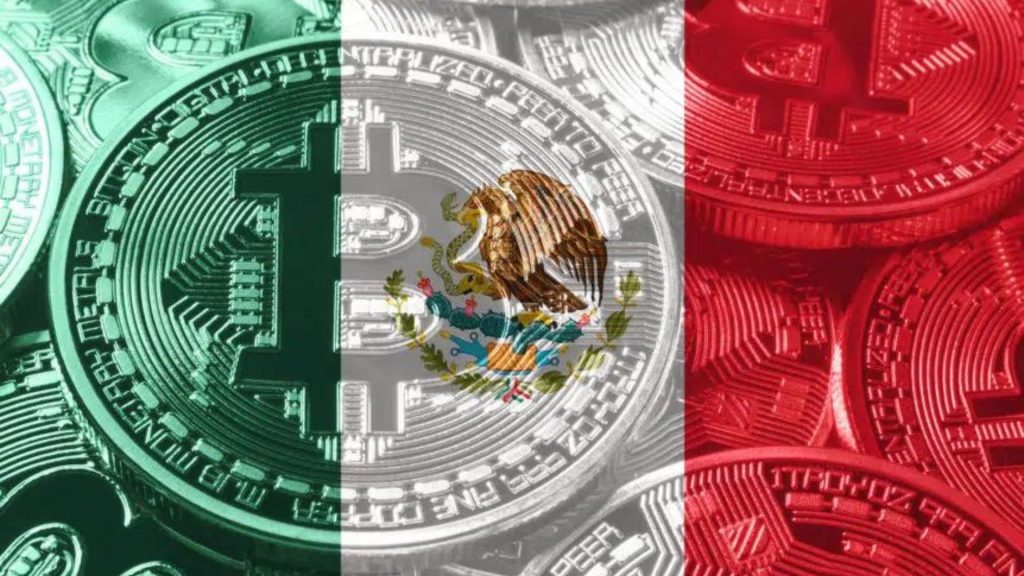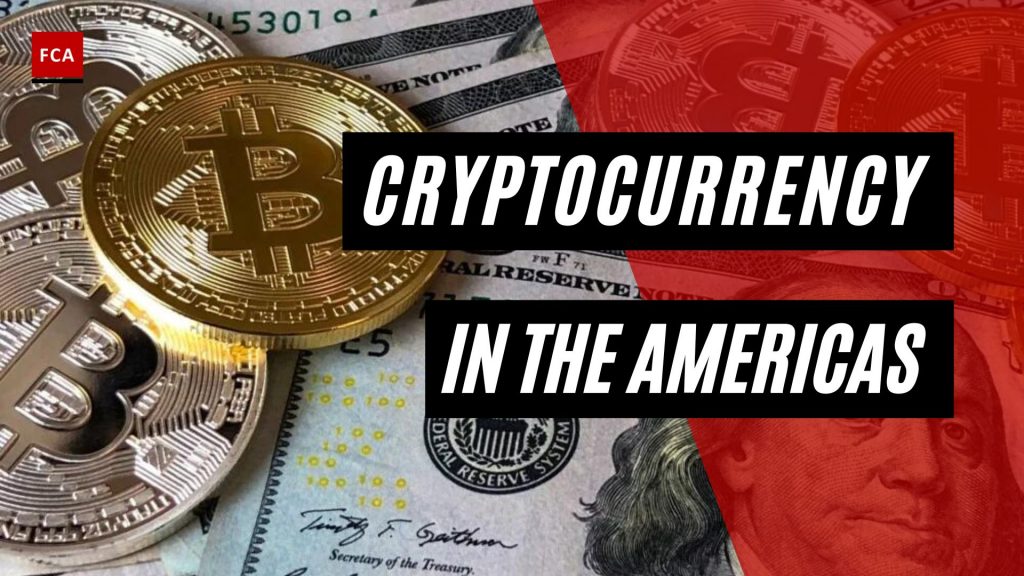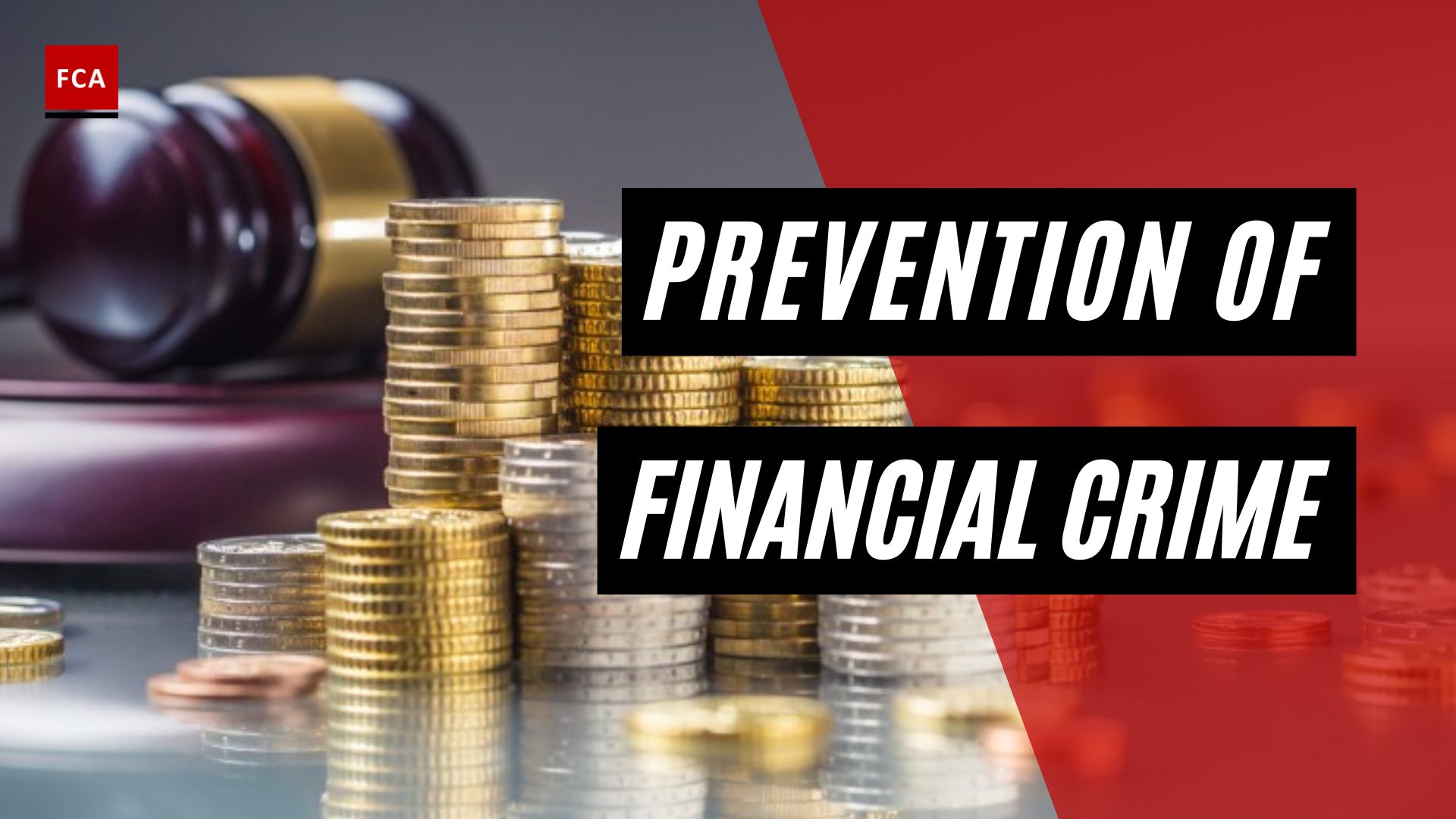The laws and regulations of cryptocurrency in the Americas. While finding a consistent legal approach at the state level is difficult, the United States is making progress in developing federal cryptocurrency legislation. The Financial Crimes Enforcement Network (FinCEN) does not consider cryptocurrencies to be legal tender, but it does consider cryptocurrency exchanges to be money transmitters because cryptocurrency tokens are “other value that substitutes for currency”. The Internal Revenue Service (IRS) does not consider cryptocurrency to be legal tender, but it defines it as “a digital representation of value that functions as a medium of exchange, a unit of account, and a store of value.

Cryptocurrency In The Americas: The Adequate Laws And Regulations Of Cryptocurrency In The Americas
Cryptocurrency exchanges are legal in the United States and are governed by the Bank Secrecy Act (BSA). In practice, this means that cryptocurrency exchange service providers must register with FinCEN, implement an AML/CFT program, keep proper records, and report to the authorities. Meanwhile, the US Securities and Exchange Commission (SEC) has stated that cryptocurrencies are securities and that digital wallets and exchanges are subject to securities laws. The Commodity Futures Trading Commission (CFTC), on the other hand, has taken a friendlier, “do no harm” approach, describing Bitcoin as a commodity and allowing cryptocurrency derivatives to trade publicly.
In response to FATF guidelines issued in June 2019, FINCEN stated that it expects cryptocurrency exchanges to follow the “Travel Rule” and collect and share information about the originators and beneficiaries of cryptocurrency transactions. It classifies virtual currency exchanges as traditional money transmitters and applies all of the same regulations, including those outlined in the Bank Secrecy Act, which has its own version of the Travel Rule. FINCEN issued a Notice of Proposed Rulemaking (NPRM) on changes to the Travel Rule in October 2020, signaling the introduction of new compliance responsibilities for cryptocurrency exchanges.
United States of America
In the United States, cryptocurrency exchanges are legal and fall under the regulatory scope of the Bank Secrecy Act or BSA. This law means that cryptocurrency exchange service providers must register with regulatory authority FinCEN, develop and implement an AML/CFT program, maintain appropriate cryptocurrency-related records, and submit reports to the relevant authorities per regulatory requirements. Meanwhile, the U.S. Securities and Exchange Commission or SEC indicated that cryptocurrencies are considered securities and that securities laws are comprehensively applied to digital wallets and exchanges.
The Commodities Future Trading Commission, known as CFTC, has adopted an approach that is a “no harm” approach, describing Bitcoin as a commodity. Further, cryptocurrency derivatives trade is allowed publicly.
The prejudicial supervision of virtual currency is the state’s responsibility, and the regulation varies by state. For example, the states of Idaho, Louisiana, New York, and Washington adopted the concept that the transfer of virtual currency and mining are the objects of money transmission following the law on the unification of monetary services. In turn, a license is required to implement cryptocurrency services.
At the federal level, there is some guidance from the Internal Revenue Service, according to which virtual currency is a digital reflection of the value that acts as a means of exchange, a unit of settlement, and a value stock. For taxation, digital money in the U.S. is classified as property.
Subsequently, cryptocurrency properties are considered for taxation purposes, and cryptocurrency operations are also taxed. For example, the salaries paid to employees with Bitcoin are subject to federal income tax and payroll taxes.
As early as 2013, FinCen issued guidance that any virtual currency exchanger is a money transmitter under the Bank Secrecy Act and must implement the provisions accordingly.
By these means, a virtual currency exchanger is a person engaged in exchanging virtual currency for real currency, funds, or other virtual currency. And money transmitter is a person involved in the business of accepting and transmitting currency, funds, or other value that substitutes for currency.
In 2017, FinCen announced the assessment of a civil money penalty against BTC-e, one of the world’s largest virtual currency internet-based exchanges by volume, for its willful violations of federal anti-money laundering laws. It can also be seen as regulatory guidance on implementing anti-money laundering regulations.
The Justice Department is coordinating with the SEC and CFTC over future cryptocurrency regulations to ensure effective consumer protection and more streamlined regulatory oversight. The U.S. Treasury has emphasized an urgent need for crypto regulations to combat global and domestic criminal activities. In January 2018, a new FSOC working group was announced to explore the increasingly crowded cryptocurrency marketplace.
Despite the heightened attention paid to virtual currencies, there’s been little concrete movement from a federal standpoint. Yet, with 21 bills around the use of cryptocurrencies and blockchain currently being considered by Congress, it looks like this may change as we move further into the upcoming years.
In response to guidelines published by FATF in June 2019, FINCEN expects crypto exchanges to comply with the “Travel Rule” related requirements and gather and share information about the originators and beneficiaries of transactions related to cryptocurrency. Virtual currency exchanges are placed in the same regulatory domain as traditional money transmitters and apply all the same regulations, including those set out in the BSA, which has established its version of the Travel Rule.
In October 2020, a Notice of Proposed Rulemaking or NPRM was released by FINCEN related to adjustments to the Travel Rule, signaling the introduction of new compliance responsibilities for cryptocurrency exchanges.
The U.S. Treasury has emphasized crypto regulations to combat global and domestic criminal activities. In December 2020, FINCEN proposed a new regulation to impose data collection requirements on cryptocurrency exchanges and wallets.
The new rule is expected to be implemented by “Fall 2022” and would require the cryptocurrency exchanges to submit suspicious activity reports for transactions over 10,000 U.S. dollars. The wallet owners shall be required to identify themselves when sending more than 3,000 U.S. dollars in a single transaction.
The Justice Department coordinates with the SEC and CFTC over the future cryptocurrency regulations, and the relevant U.S. authorities are putting their efforts into ensuring effective consumer protection and streamlining the regulatory oversight. In 2021, the Biden administration put its attention to the stablecoins, intending to address the risks and danger of the tokens’ growth in value. Later in 2021, the President’s Working Group on Financial Markets released a report, which included recommendations for new legislation to protect stablecoin users and interim regulatory measures to address stablecoin risks under the existing Electronic Fund Transfer Act, the Consumer Financial Protection Act, and the Gramm-Leach-Bliley Act.

Canada
In Canada, cryptocurrencies are legal. However, they are not considered legal tender because the government of Canada only recognizes the Canadian dollar as the official currency of the country. Legal tender is defined as notes issued by the Canadian Bank and coins from the Royal Canadian Mint or the RCM Act. Knowing the difference is important for multiple reasons. Institutions in Canada do not oversee or manage cryptocurrencies, so apart from being not regulated, cryptocurrencies are not supported by any central authority.
More formal CRA would not accept them as a payment for taxes, but individual businesses can choose to accept cryptocurrency at their own risk. Everyone can legally purchase crypto in Canada, the second in the world after the united states in terms of the number of installed Bitcoin ATMs. The Canada Revenue Agency has taxed cryptocurrencies since 2013. Payment for goods or services with the help of cryptocurrency in Canada is subject to taxation as a barter transaction. In the case of the sale of digital currency, income tax, a corporate income tax, or a capital gains tax is levied.
Cryptocurrency exchange regulations in Canada are inconsistent at the provincial level. However, at the federal level, the authorities treat cryptocurrencies as securities. Exchanges, however, are essentially regulated similarly to money services businesses and are subject to due diligence and reporting obligations. The types of transactions for which cryptocurrency is used are limited because cryptocurrency is not legal tender, and no one is required to accept it. Canadians cannot use it for paying taxes or making other government-related payments.
Bitcoin, the popular cryptocurrency, was a bit of a shadow surrounding it with gossip about the criminals selling the skills for Bitcoin to avoid possible tracking. Like any currency, some will choose to abuse it; thankfully, much of this shadow has disappeared, and people now see it as a valuable digital currency. Bitcoin is considered to continue growing in Canada and is flourishing.
Additionally, Montreal is home to the only Bitcoin embassy, offering information about cryptocurrency adoption and technology. In November, the Canada Revenue Agency or CRA released a fact sheet referring to Bitcoin as a digital currency and virtual money, distinct from the traditional currency or money.
The fact that crypto is not legal tender also means that it comes with fewer protections, which means there is no federal or provincial insurance on cryptocurrency like there would be with a savings account that holds Canadian dollars. If a merchant is willing to risk it, however, they may accept whatever payment they choose, like Bitcoin. It is similar to businesses along the border that take U.S. dollars as a payment even though they are not considered legal tender in Canada.
The Canadian government allows the use of cryptocurrency, and online and physical stores can accept digital currencies if they want to. Many institutes are open to non-traditional payment methods to ease the shopping experience and increase security to mitigate risks. When entering a traditional store, whether they accept Bitcoin for payment depends on the establishment. Typically, the stronger the online presence, the more likely they will accept or take the Bitcoin as payment.
While the cryptocurrency regulations are constantly evolving, there are no signs of additional legislation, and recent updates to the Proceeds of Crime and Terrorist Financing Act have yet to take full effect. It is suspected that the government and crypto exchanges will require some time to evaluate the changes affecting the cryptocurrency landscape before considering additional legislation.

Mexico
Cryptocurrencies are prohibited in Mexico. The government and the financial authority, CNBV, enacted fintech laws in March 2018 that developed a regulatory framework and “sandbox” for virtual assets. Mexico’s Law to Regulate Financial Technology Companies, enacted in March 2018, included a chapter on “virtual assets,” commonly known as cryptocurrencies.
Here, virtual assets are defined as representations of value electronically registered and utilized by the public as a means of electronic payment for all types of legal transactions. Mexico enacted a law extending the application to laws regarding money laundering to virtual assets, requiring financial institutions providing services relating to such assets to report transactions exceeding specific amounts.
As the cryptocurrency market evolves, the Central Bank of Mexico is granted broader powers under the law to regulate virtual assets. Their scope includes specifying those virtual assets that financial companies are allowed to operate within Mexico and defining the characteristics, conditions, and restrictions that apply to transactions with such digital viral assets.
The Mexican Financial System Stability Council decided to adopt a conservative approach related to cryptocurrencies, considering that there should be a healthy distance between virtual assets and the Mexican financial system.
Financial institutions which carry out virtual assets transactions must disclose to the clients the risks applicable to the use of digital assets. At a minimum, these institutions must inform the clients clearly on their respective websites or through the means that they utilize to provide services about the following information:
- A virtual asset is not a legal currency and is not backed by the federal government nor by Mexico’s Central Bank;
- Once executed, transactions with virtual assets may be irreversible;
- The value of virtual assets is volatile; and
- Technological, cybernetic, and fraud risks are inherent in virtual assets
In the communication held on June 28, 2021, regarding operations with virtual assets, some of the financial regulators, including the National Banking and Securities Commission, the Ministry of Finance and Public Credit, and the Mexican Central Bank, established that virtual assets do not constitute legal tender in Mexico and not a currency as per current legal framework.
Further, the financial institutions with prior authorizations from the Central Bank of Mexico may only enter into virtual asset transactions corresponding to those activities carried out internally to carry out transactions that institutions enter into with their clients. Financial institutions are not allowed to enter into or offer public transactions in virtual currencies.
Additionally, the communication held also described the stance of regulators towards stablecoins, where it was established that the issuance of these collection rights against the issuer is not considered a distinct activity from the collection of resources, which is prohibited by financial institutions regulated domestically.
If the authorizations are not taken, no one is allowed to raise funds through the issuance or offer in the national territory of the instruments known as stablecoins.
According to FINTECH law, the banks may perform operations using virtual assets before recognition and authorization from the Central Bank of Mexico.
The legal framework related to virtual assets also includes provisions issued by the Mexican Central Bank, the purpose of which is to determine the characteristics of the virtual asset which should be fulfilled to be used by the financial institutions.
In Mexico, the permitted financial entities for cryptoassets are banks and financial institutions. Money transmitters are not permitted to operate with virtual assets unless authorized to do so due to a temporary authorization granted by the financial regulators under the regime of Regulatory Sandbox. Banks and FIs are required to develop and implement the appropriate AML/CFT program and systems to ensure that the risk of money laundering or terrorist financing is avoided and criminals are not entertained.

Ecuador
Only 2.73% of the population of Ecuador owns cryptocurrencies, which is estimated to be within the range of 500,000 people. Bitcoin trading is not an illegal activity in the country. It is prohibited to use it as a payment system. The problem is that Ecuador is not very accustomed to using electronic money, so even in 2015, the introduction of Dinero Electronico did not make too much of a dent in the hearts of the citizens.
Ecuador has banned the issuance, promotion, or circulation of virtual currencies and plans to issue its digital currency for use as legal tender. Ecuador’s official fiat currency is the US-Dollar, and the digital currency under Ecuador’s electronic Currency system is said to be equivalent and convertible to US-Dollars. The Central Bank of Ecuador stated that Bitcoin is not an authorized payment method. It clarified that any authority does not back Bitcoin because its value is based merely on speculation.
The Central Bank stated that purchasing and selling cryptocurrencies, such as Bitcoin, through the internet are not forbidden. Still, it was reiterated that Bitcoin is not legal tender and is not an authorized payment method for goods and services according to article number 94 of the Código Orgánico Monetario Financiero or the “Organic Monetary and Financial Code.” Ecuador created its electronic money system, which is directly tied to the US dollar and strictly regulates the crypto-industry. The local National Assembly initially banned Bitcoin and other non-fiat currencies.
Currently, the Central Bank of Ecuador adheres that using Bitcoin and other cryptocurrencies is not an authorized payment method. But, the sale and purchase of existing cryptocurrencies are legal in this country. The regulator states that the speculative nature of cryptos and the highly risky nature of these transactions are because of the lack of supervision over them.
The users of the official system are allowed to pay for some services with the help of Ecuadorian electronic means and transfer them from one individual to another. The current government is eager to secure the capital and control its movement. Therefore, companies that need cryptocurrency licenses must diversify their business and transfer exchangers to other jurisdictions.
The presidential candidate Andrade Giovanny expressed an interest in establishing a cryptocurrency concurrent with Ecuador’s US dollar standardized economy. At the same time, the proposal remains controversial because Ecuadorian adopted the US dollar in 1999.

Argentina
In Argentina, Bitcoins may be considered money but not legal currency. A bitcoin may be considered either a good or a thing under Argentina’s Civil Code, and transactions with bitcoins may be governed by the rules for the sale of goods under the Civil Code. On May 5, 2022, the Central Bank of Argentina banned the FIs from facilitating cryptocurrency transactions.
Virtual currencies are not legal tender under the country’s national Constitution, which designates the Central Bank as the only authority that may issue legal tender. In addition, things such as Bitcoin mining in Argentina and Bitcoin exchanges are also legal. Bitcoin is considered good under the Argentine Civil Code, and the rules of the Civil Code govern its transactions. In some contexts, cryptocurrencies are subject to capital gains tax and income tax.
Under the National Constitution of Argentina, the only authority capable of issuing legal currency is the Central Bank. Cryptocurrencies are not legal currency, as per the Argentine Civil and Commercial Code, since they are not issued by the government monetary authority and are not legal tender. Cryptocurrencies may be considered money but not legal currency since these are not a mandatory way of canceling obligations or debts.
Argentina has exercised strict controls over foreign currencies. However, it became an early adopter of cryptocurrency to protect against inflation. While cryptocurrencies are not prohibited, the Argentinian government has promulgated regulations concerning cryptocurrencies, particularly in the areas of taxation and anti-money laundering.
The Argentinian National Securities Commission published risks associated with initial coin offerings. The Financial Information Unit defined cryptocurrencies as a “digital representation of value that can be digitally traded and functions as a medium of exchange, and/or a unit of account; and/or a store of value, but does not have legal tender status in any jurisdiction and is neither issued nor guaranteed by any government or jurisdiction.” UIF Resolution 300/ 2014 provides enhanced reporting requirements under the laws related to Anti-Money Laundering and Tax Reform. Profits derived from the sale of digital currency are considered income and are subject to taxation.

Brazil
Brazil’s Securities Exchange Commission has determined that a particular Brazilian cryptocurrency, the so-called Niobium Coin, is not a financial asset. The Brazilian Niobium coin is a utility token created by coding on the Ethereum platform. Now the Securities Exchange Commission in Brazil has stated that virtual currencies are to be considered securities only when they pay interest or dividends to their investors or allow for participation in company management through votes. In some contexts, cryptocurrencies are subject to capital gains tax and income tax.
Brazil has not currently enacted regulations or legislation specifically regulating cryptocurrency. Nonetheless, existing legal and regulatory structures guide cryptocurrencies. Virtual currencies do not currently fall under the definition of legal currency under Brazilian law.
As per Decree-Law 857-69 and Law 10192/ 01, the Brazilian real is the country’s legal currency. Cryptocurrencies are generally considered assets under the general Civil Code regime. Initial Coin Offerings, at least those that intrinsically take on the functional characteristics of a security, may be subject to the Capital Markets Law and the Brazilian Securities Exchange Commission regulatory framework. Offers may be subject to CVM Ruling 400/ 03 and/ or other CVM guidance. Brazilian law does not provide for an anti-money laundering regime specific to virtual currencies. However, the existing AML Law extends to virtual currencies in some contexts.
The tax law of Brazil does not currently provide provisions specific to cryptocurrency. However, the tax authorities guide the form of Q & As, which require that virtual currencies are declared to tax authorities in income tax statements, and capital gains derived from the sale of virtual currencies are subject to taxation.
In late 2020, the lawmakers of Brazil proposed legislation to regulate cryptocurrencies and provide for a series of laws governing their use for business purposes.
Final Thoughts
The US Treasury has emphasized the critical importance of crypto regulations in combating global and domestic criminal activity. FINCEN proposed a new cryptocurrency regulation in December 2020, requiring cryptocurrency exchanges and wallets to collect data. The rule, which is set to go into effect in the fall of 2022, would require exchanges to submit suspicious activity reports (SAR) for transactions worth more than $10,000 and wallet owners to identify themselves when sending more than $3,000 in a single transaction.








